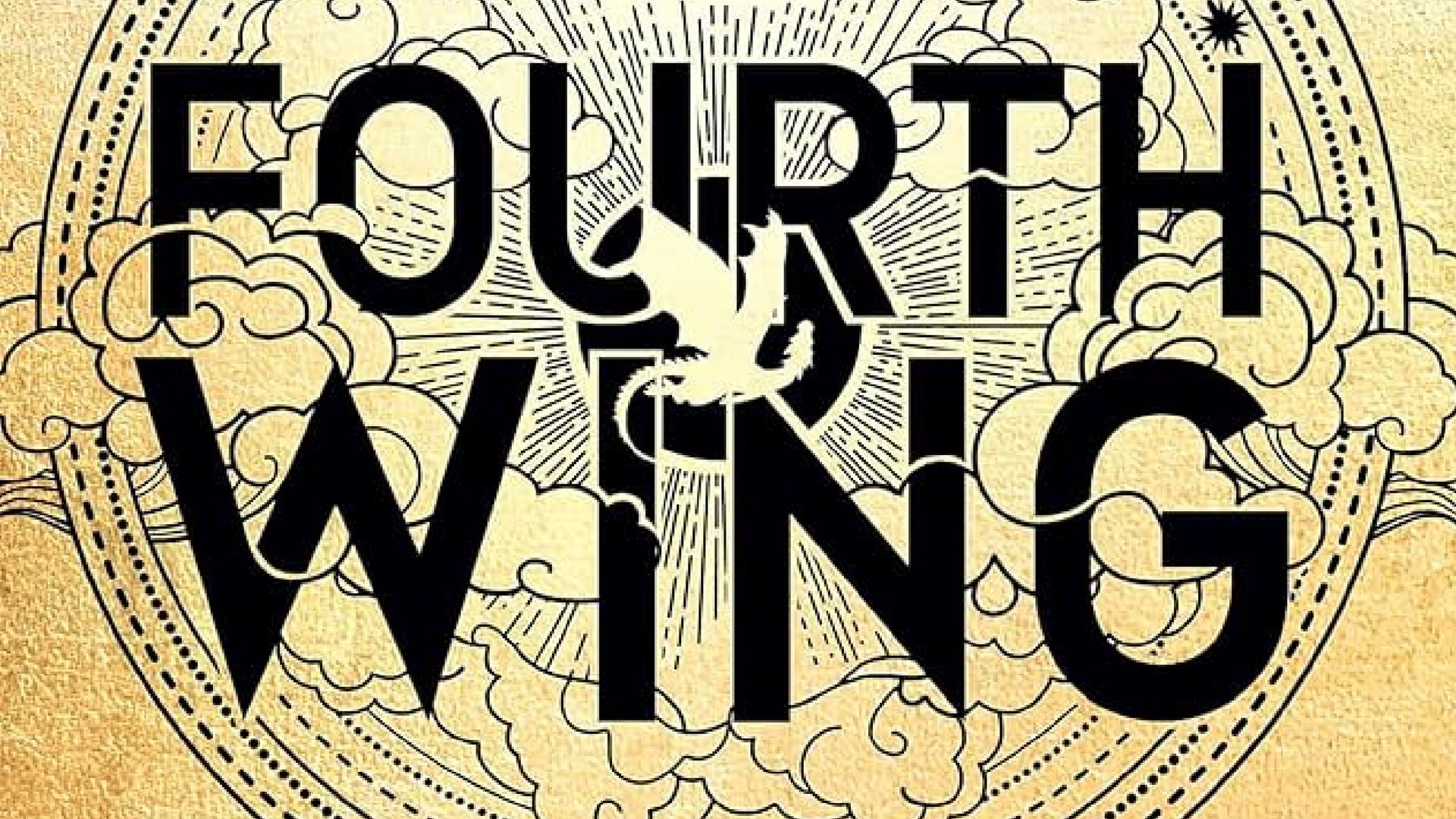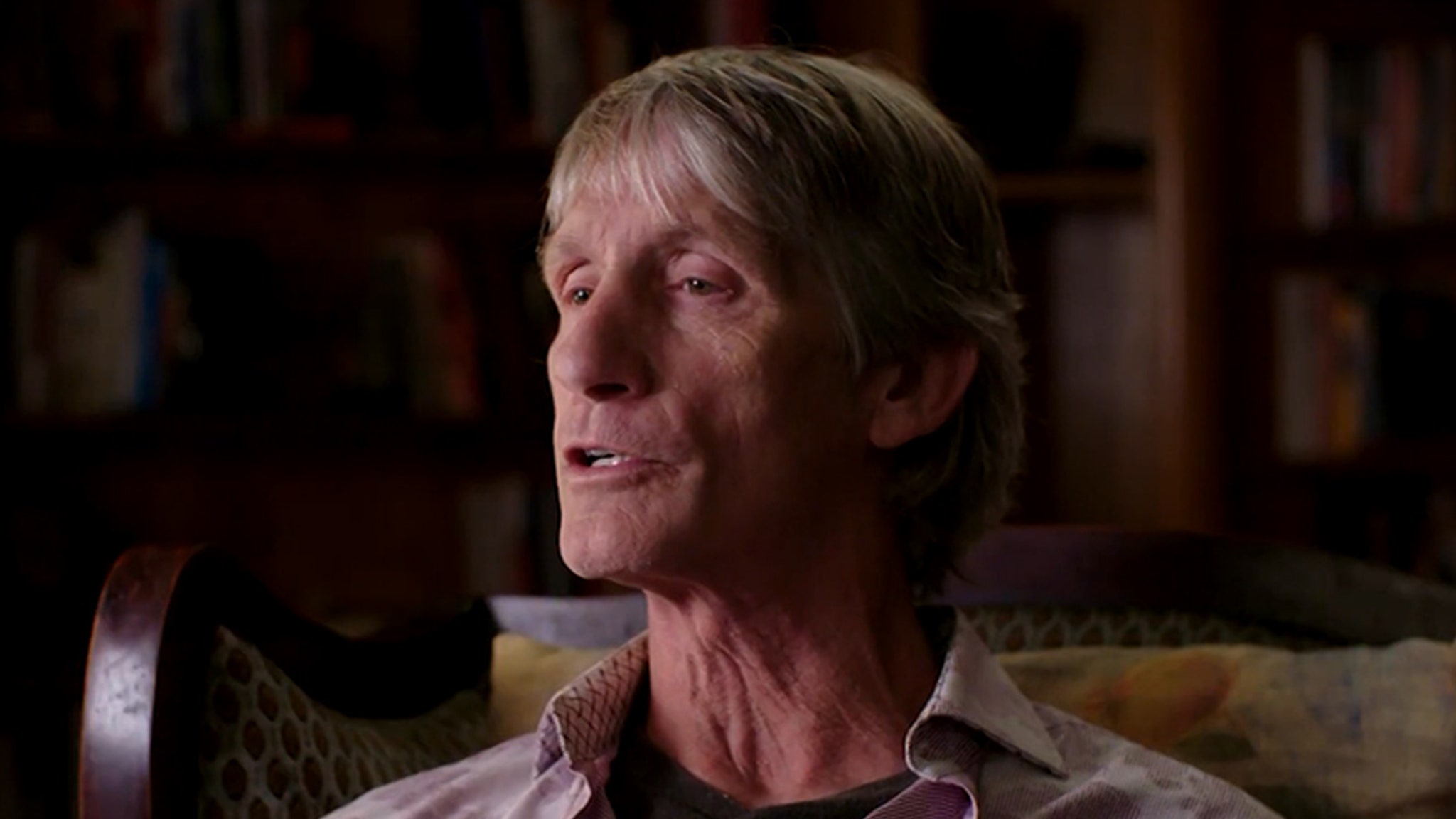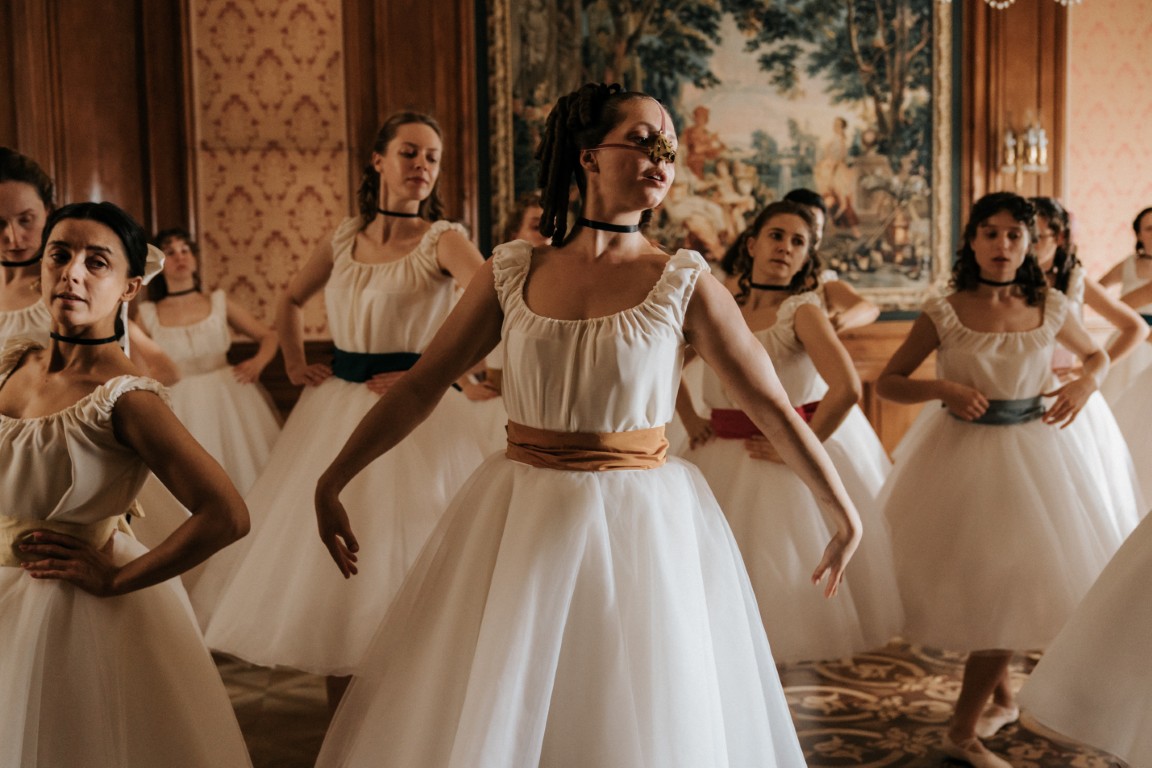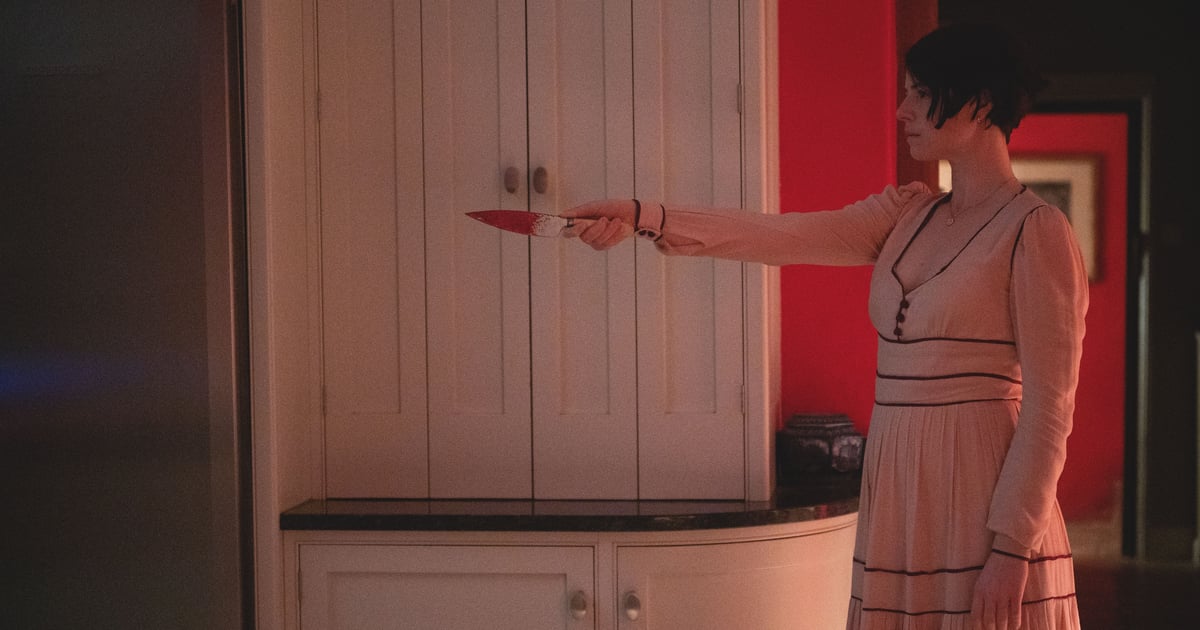Content warning: This article contains a detailed account of a man’s death by suicide as depicted in the film “Men.”
Director Alex Garland’s new A24 horror movie “Men” follows Harper (Jessie Buckley), a woman who’s trying to enjoy a quiet stay in the countryside after her husband James (Paapa Essiedu) has died by suicide. Viewers learn through flashbacks that the couple had been fighting in their apartment. Harper wanted a divorce, and James blamed her for not being able to love him through his mental health struggles. He told her that if she divorced him, he would kill himself, and it would be her fault. He also hit her, and she banned him from the apartment, locking him out. However, he forced his way into their neighbors’s apartment and tried to climb from their balcony into his and Harper’s home. But he slipped and fell, and now Harper is haunted by the image of his face looking at hers on the way down.
The haven Harper chooses for her escape turns out to be anywhere but a safe place to land. The village is populated by numerous unsettling men (all played by Rory Kinnear) who make her feel like an unwanted outsider. Among them are a vicar who tells her it’s her fault her husband died, an aggressive teenager who swears at her, and a naked man who wanders the forest and stalks her outside the house where she’s staying. Her only contact with the outside world is through FaceTime calls with her friend Riley (Gayle Rankin), who is pregnant.
At the film’s climax, Harper is deciding whether to finally leave. Riley offers to come meet her, but their connection keeps breaking whenever Harper says the address. Then, she’s interrupted by the naked man stalking her outside. He’s covered himself in blood and leaves. She barricades the door against him, and he slides his hand through the mail slot. She stabs his arm, but horrifyingly he pulls his arm through the slot, slicing his arm and hand in two. It’s a horrifying visual, but it’s also a clue as to where the film is going. If viewers remember how Harper found her husband after he fell off the balcony, his arm had been impaled on the fence, similarly splitting it.
The naked man transforms into the teenaged boy, who terrorizes Harper, then the vicar, who chases her into the bathroom. After both the transformations, his hand is still split, but it doesn’t seem to be stopping him. The vicar tells Harper he’s obsessed with her vulva and vagina. This ties into two mythical figures who are present throughout the film — the Green Man, who the naked man either wants to be or literally is, and the Sheela-Na-Gig.
The Green Man and the Sheela-Na-Gig are both legendary beings, and carvings of them are found in churches throughout the world. Many believe their origins are pagan, but that doesn’t really explain how they ended up in so many Christian places of worship. Earlier in the movie, when Harper goes to the church, she sees carvings of them on either side of the fount there, and the movie returns to their images many times. The Green Man, who is covered in leaves, represents masculinity; that’s why the naked man has covered himself in leaves. The Sheela-Na-Gig is a woman who uses her fingers to display her exaggerated vulva. The movie sets up the Green Man and the Sheela-Na-Gig as dualities, but the ending brings them together, as it’s the men who end up giving birth, splitting their bodies open.
Eventually, Harper gets out of the house and runs for her car. She finds the owner of the house, Geoffrey. At first she thinks he’s an ally, but he attacks her, too. He steals her car and chases her back to the house.
Here’s where things get really gruesome. Geoffrey’s stomach becomes very large, as if he is pregnant and growing a child very quickly. And that’s what happens — his body splits open and he gives birth to another adult man, who discards his carcass and keeps walking forward as the same thing happens to him. The cycle of pregnancies and deaths repeats itself multiple times, each man giving birth to a new one in graphic detail. By now, they don’t just have the same arm injury that Harper’s husband had — they also have a broken leg like he did, too. The vicar’s words about being jealous of women for having vulvas prove prescient: these men can give birth now, but they must create the birth canal. It’s grisly and scary and difficult: life-giving and life-draining.
So it’s not surprising when the last version is James himself, reborn but still injured from his death. He stops trying to fight Harper and sits next to her on the couch. He accuses her of resenting his mental health and blames her for trying to divorce him and for his death. Harper, defeated, asks what he wants. He tells her he wants her to love him, and she says she knows.
The title, “Men,” appears on screen, and the song “Love Song” begins. The original version of “Love Song” by Lesley Duncan played at the beginning of the movie. Here, the cover version by Elton John plays, which is a duet with Duncan. But the movie isn’t over yet. It cuts to the next day as the music continues. Riley has finally arrived to check on her friend. She notices blood on the doorstep and finds Harper sitting in the garden, at peace.
“Love Songs”‘s lyrics might help us understand just what message the movie is trying to leave audiences with. The chorus goes: “Love is the opening door / Love is what we came here for / No one could offer you more / Do you know what I mean? / Have your eyes really seen?” In the closing moments, Harper still refuses to give James love, no matter how badly he and the other men have tried to convince her it’s her duty to hand it over. Even the song “Love Song” has been taken over by men during the course of the movie, switching from Duncan to John. Now at the film’s end, its lyrics feel more like a threat than a promise. But Harper refuses to buckle. This one thing — her love — she will keep for herself.
The movie also references the Garden of Eden. In one of the first scenes, Harper takes an apple from the tree in the house’s garden and eats it, which Geoffrey scolds her for, only to claim he’s joking. In the Bible, Eve eating the fruit of the tree of knowledge leads God to expel Adam and Eve from the Garden, a decision Eve — and thus all women — has been vilified for throughout history. But at the end of “Men,” the men have been expelled, and it’s only women who remain in the garden.
If you or a loved one are experiencing suicidal ideation or are at risk, the National Suicide Prevention Lifeline has several resources and a 24/7 lifeline at 1-800-273-8255.
Image Source: A24
You can view the original article HERE.




























:quality(85):upscale()/2025/04/17/966/n/1922564/69dc205568017c7cad79f2.40744747_.png)

